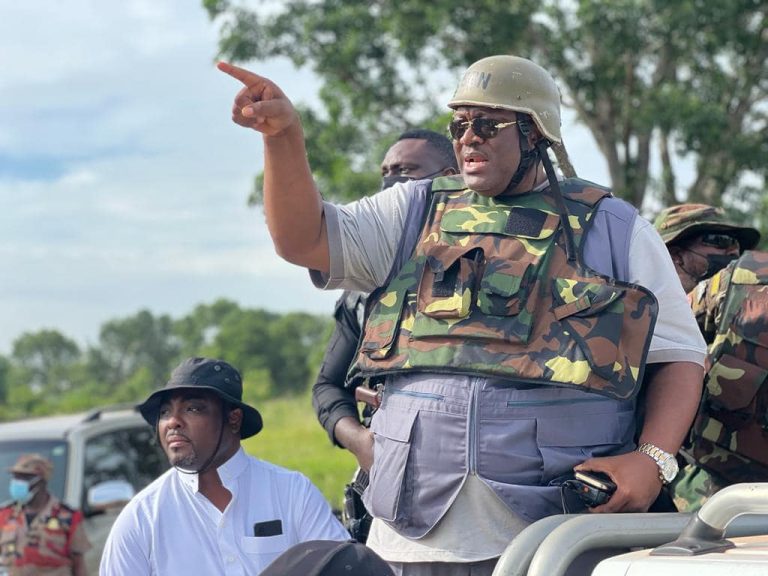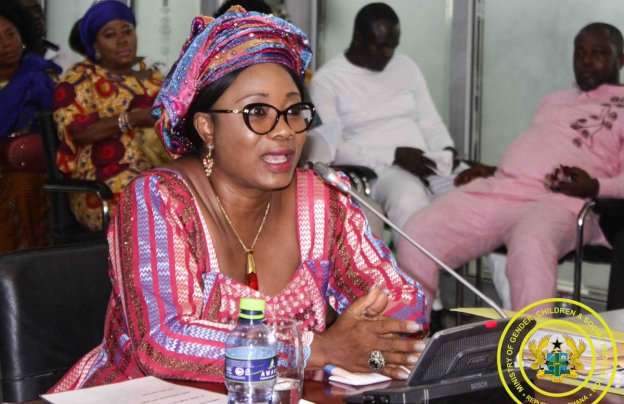 The International Monetary Fund (IMF) has raised burning questions about some of the terms and conditions in government’s US$2 billion infrastructure for bauxite agreement with China’s Sinohydro.
Under the agreement, the Ghana Integrated Aluminum Development Corporation (GIADC) is required to set up an offshore escrow account for revenue generated from selling bauxite – to secure GIADC’s repayments to Sinohydro with the provision that the funds will be for the exclusive benefit of Sinohydro. At any time during the term, the escrow account is required to have amounts sufficient to cover the upcoming two instalments – from the start of construction onward.
This, the IMF 7th and 8th review report of the Extended Credit Facility (ECF) for Ghana says, will put a limitation on how government can exercise discretion over using its own resources.
“Nonetheless, committing future bauxite receivables to debt service and locking bauxite sales receipts in the escrow account limits the GoG’s ability to exercise discretion of how the proceeds are allocated.
“Government estimates that Ghana’s bauxite resources can potentially deliver over US$500billion in revenue. It will however take considerable effort and time to put into place GIADC’s capabilities to produce enough refined bauxite to cover debt service under the agreement,” the IMF said.
Even though the agreement said all financial obligations to Sinohydro will be transferred from the Ministry of Finance to GIADC – at which point government will have no financial liability to Sinohydro, nor will it provide any guarantees – the IMF says the possibility of government carrying the burden of GIADC exists if it is unable to fulfil its financial obligations to Sinohydro.
“In the event of a breach of the agreement by GIADC, Sinohydro may demand repayment. In the event that the transfer of obligations from MoF to GIADC is not completed as envisaged, this arrangement will be considered as a government obligation. At this stage, the conditions precedents (CPs) specified in the agreement have not been met and could take a few months to be satisfied,” the report said.
Meanwhile, President Nana Addo Dankwa Akufo-Addo last month cut the sod for construction of the Tamale Interchange, to mark the start of work under the agreement that was approved by parliament in July 2018.
The one-kilometre Tamale Interchange will link the Kumasi road through the Point 7 road, the Central Taxi Rank, Central Market intersection with the Melcom Road and Bolgatanga Road. A total of 442 kilometres of roads will be constructed under the first phase of the agreement at a cost of US$646million.
This will include the construction of an 84km Accra inner-city road network; 100km Kumasi inner-city road network; 39km of Sunyani and Berekum inner-city roads; 32 km of Cape Coast and Prestea inner-city roads; 66km of Hohoe and Jasikan roads; rehabilitating 38km of the Akyem-Oda Asafo-Ofoase road; as well as upgrading selected feeder-roads in Kumasi and the Western Region.
An additional 1,300 kilometres of roads, three interchanges and 69 steel bridges will be constructed at an estimated US$850million under phase-two of the agreement.
Source: B&FT | Ghana]]>
The International Monetary Fund (IMF) has raised burning questions about some of the terms and conditions in government’s US$2 billion infrastructure for bauxite agreement with China’s Sinohydro.
Under the agreement, the Ghana Integrated Aluminum Development Corporation (GIADC) is required to set up an offshore escrow account for revenue generated from selling bauxite – to secure GIADC’s repayments to Sinohydro with the provision that the funds will be for the exclusive benefit of Sinohydro. At any time during the term, the escrow account is required to have amounts sufficient to cover the upcoming two instalments – from the start of construction onward.
This, the IMF 7th and 8th review report of the Extended Credit Facility (ECF) for Ghana says, will put a limitation on how government can exercise discretion over using its own resources.
“Nonetheless, committing future bauxite receivables to debt service and locking bauxite sales receipts in the escrow account limits the GoG’s ability to exercise discretion of how the proceeds are allocated.
“Government estimates that Ghana’s bauxite resources can potentially deliver over US$500billion in revenue. It will however take considerable effort and time to put into place GIADC’s capabilities to produce enough refined bauxite to cover debt service under the agreement,” the IMF said.
Even though the agreement said all financial obligations to Sinohydro will be transferred from the Ministry of Finance to GIADC – at which point government will have no financial liability to Sinohydro, nor will it provide any guarantees – the IMF says the possibility of government carrying the burden of GIADC exists if it is unable to fulfil its financial obligations to Sinohydro.
“In the event of a breach of the agreement by GIADC, Sinohydro may demand repayment. In the event that the transfer of obligations from MoF to GIADC is not completed as envisaged, this arrangement will be considered as a government obligation. At this stage, the conditions precedents (CPs) specified in the agreement have not been met and could take a few months to be satisfied,” the report said.
Meanwhile, President Nana Addo Dankwa Akufo-Addo last month cut the sod for construction of the Tamale Interchange, to mark the start of work under the agreement that was approved by parliament in July 2018.
The one-kilometre Tamale Interchange will link the Kumasi road through the Point 7 road, the Central Taxi Rank, Central Market intersection with the Melcom Road and Bolgatanga Road. A total of 442 kilometres of roads will be constructed under the first phase of the agreement at a cost of US$646million.
This will include the construction of an 84km Accra inner-city road network; 100km Kumasi inner-city road network; 39km of Sunyani and Berekum inner-city roads; 32 km of Cape Coast and Prestea inner-city roads; 66km of Hohoe and Jasikan roads; rehabilitating 38km of the Akyem-Oda Asafo-Ofoase road; as well as upgrading selected feeder-roads in Kumasi and the Western Region.
An additional 1,300 kilometres of roads, three interchanges and 69 steel bridges will be constructed at an estimated US$850million under phase-two of the agreement.
Source: B&FT | Ghana]]>
IMF waves red flag on Sinohydro deal
Reading Time: 3 mins read
Recent Posts
- Cynthia Morrison faces jail term over contempt charges
- Survey: NPP’s Chris Arthur projected to win Agona West by landslide
- President Jerry John Rawlings – Four Years On
- Friday, November 8 not a public holiday – Interior Ministry
- Tragic: Speeding NDC vehicle kills the only child of a mother at North Dayi
- Pay NABCO trainees if you care about Ghanaian youth – Mahama tells Bawumia
- Suspend planned strike – FWSC pleads with CLOGSAG
- Some lawyers sacrifice ethics for ‘cheap’ political gains – Attorney-General
Popular Stories
-
Cynthia Morrison faces jail term over contempt charges
-
Survey: NPP’s Chris Arthur projected to win Agona West by landslide
-
Friday, November 8 not a public holiday – Interior Ministry
-
Agona West MP deserts NPP, promises ‘doku’ to women as she goes independent
-
University staff declares nationwide strike

ABOUT US
Newstitbits.com is a 21st Century journalism providing the needed independent, credible, fair and reliable alternative in comprehensive news delivering that promotes knowledge, political stability and economic prosperity.
Contact us: [email protected]
@2023 – Newstitbits.com. All Rights Reserved.















